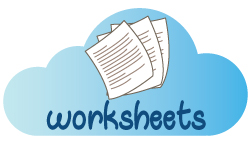What Is a Syllable? | How to Count Syllables
- English Lessons >
- Syllables
Overview of Syllable:
- Introduction to Syllables
- What Is a Syllable?
- Examples of Syllables
- Formation of Syllables
- Types of Syllables and Words
- What Is an Open Syllable?
- What Is a Closed Syllable?
- How Knowledge of Syllable Types Helps Reading
- How Knowledge of Syllable Types Helps Spelling
- Monosyllabic Words
- Types of Monosyllabic Words
- Multisyllabic Words
- Word Stress
Introduction to Syllables
Take the two sentences for instance. Peter made huge progress in his grammar lessons. Peter progressed a lot with his grammar lessons. You have probably already understood the fact that the first sentence has the word progress used as a noun, and the second sentence has the word progress functioning as a verb. If you are wondering what we are blabbering about, it’s because you are new to the world of syllables. To answer this question, pronounce the word first as a noun and pronounce it again as a verb. The noun progress has its stress on the first syllable while the verb progress has its stress on the second syllable. Syllables are an important aspect of English learning. Understanding details like what syllables are, how many types of syllables there are, how many syllables are in a word form, and so on forms the crux of syllable learning.
What Is a Syllable?
A syllable is a single, unbroken unit or sound of a spoken word. Often it’s when consonants join vowels that a syllable is born. A syllable may have more than one letter but not more than one sound. An easy way to understand a syllable is to think about it as a segment of sound produced with a single pulse of air from the lungs.
Examples of Syllables
-
Here are some examples of one-syllable words:
Try
Syllable stress in try: try
How to pronounce try: trahy
Car
Syllable stress in Car: car
How to pronounce Car: kahr
Tree
Syllable stress in tree: tree
How to pronounce tree: tree
-
Here are some examples of two-syllable words:
Hotel
Syllables in hotel : ho-tel
Syllable stress in hotel : ho-tel
How to pronounce hotel : hot-tel
Meeting
Syllables in meeting : meet-ing
Syllable stress in meeting : meet-ing
How to pronounce meeting: mee-ting
Seven
Syllables in seven : sev-en
Syllable stress in seven: sev-en
How to pronounce seven: sev-en
-
Here are some examples of three-syllable words:
Happiness
Syllables in happiness : hap-pi-ness
Syllable stress in happiness: hap-pi-ness
How to pronounce happiness: hap-ee-nis
Amazing
Syllables in amazing : amazing
Syllable stress in amazing: a-maz-ing
How to pronounce amazing: uh-mey-zing
Holiday
Syllables in holiday : hol-i-day
Syllable stress in holiday: hol-i-day
How to pronounce holiday: hol-i-dey
Formation of Syllables
Syllables drive meaning in language. At the heart of every word is the sound created with the coming together of its vowels and consonants. Most of the time, it’s when a vowel joins with a consonant or consonants that a syllable is formed. It’s common for a syllable to have more than one vowel but not more than one vowel sound.
Types of Syllables and Words
Syllables are divided into open and closed syllables based on how they are formed. Words are divided into monosyllabic words and polysyllabic words based on how many syllables are there in it. We are now going to first discuss open and closed syllables. Then, we’ll talk about monosyllabic and polysyllabic words.
What Is an Open Syllable?
To get your head around open syllables, consider words that are one-syllable long and end with a vowel. Since there are no consonants closing the vowels off, they remain open.
Formed with only one vowel, an open syllable has just one vowel sound. To identify an open syllable, look for either a single vowel standing on its own as in I or a single vowel at the end of the word like in be. In other words, this syllable ends in a long vowel.
Examples:
she, me, go, a, no, so
Try pronouncing the word she for example. The word ends in a long vowel e. There is no consonant closing it, so it remains open.
What Is a Closed Syllable?
A closed syllable has a vowel followed by or rather closed by a consonant. There is only one vowel and therefore only one vowel sound. In such syllables, the vowels say their short sounds most of the time.
Examples:
club, king, slab, panic, basket, fantastic, magnetic
Try pronouncing the word club for example. The vowel u is followed or closed by the consonant b. Also, the vowel says its short sound.
How Knowledge of Syllable Types Helps Reading
Effective knowledge of open and closed syllables helps students with their reading. Imagine, for example, you come across the word "debt" while reading and you have no idea how to read it. If you have read about open and closed syllables, you will most likely not freak out because you are equipped to tell if the e in "debt" says its short sound or long sound. You zero in on the word and find that the e is followed by a consonant. So you come to the conclusion that it’s a closed syllable and a hence short vowel.
How Knowledge of Syllable Types Helps Spelling
Being aware of open and closed syllables can help with spelling, too. Let’s say, for instance, your teacher asks you to spell the word "written". You are confused if it’s writen with a single t or written with two ts. You put whatever little knowledge you have about open and closed syllables to play. It doesn’t take you long to figure out that if you left the first vowel open, you’d say the long sound and end up writing writen. You are sure you heard the teacher say a short and not a long sound, which means the word is spelled written.
Monosyllabic Words
The prefix mono- means one or single. A monosyllabic word is a word with only one syllable. In other words, it’s an uninterrupted sound or single sound that makes a complete word.
Examples:
Live, eat, drink
Types of Monosyllabic Words
Single Vowel Sound
Take the word "ran" for instance. It’s a word with two consonants and one vowel. The vowel sound "a" teams up with two consonants to make one syllable.
Now, take the word "dry" where the long "i" sound formed by the "y" joins with the two consonants to make one syllable.
Double Vowels with Single Sound
Take the word "grain" where there are three consonants and two vowels. The two vowels "a" and "i" produce one long vowel sound. A monosyllabic word is formed when the single vowel sound clubs with three consonants.
Words Ending in a Silent E
Let’s explain this with the help of an example yet again. Take the word "sane", which is formed with two consonants and two vowels. The end-of-the-word "e" is silent so as to easily represent a long "a" sound. A monosyllabic word is formed when the single, long vowel sound joins with the two consonants.
Multisyllabic Words
A multisyllabic word is a word with more than one syllable. This can be two, three, four, or more syllables.
-
Two-Syllable Words or Disyllabic Words:
Example:
Christmas
Number of syllables: 2
The two syllables are: Christ-mas
The stressed syllable is: Christ-mas
The word is pronounced: Krist-mas
-
Three-Syllable Words or Trisyllabic Words:
Example:
Apartment
Number of syllables: 3
The three syllables are: a-part-ment
The stressed syllable is: a-part-ment
The word is pronounced: u-pahrt-ment
-
Four-Syllable Words or Tetrasyllabic Words:
Example:
Accuracy
Number of syllables: 4
The four syllables are: ac-cu-ra-cy
The stressed syllable is: ac-cu-ra-cy
The word is pronounced: ak-yer-uh-see
Word Stress
At this syllable hour, we must talk a little bit about if not expound on what word stress is. Word stress is the idea that while pronouncing a word (a word that has more than one syllable), we don’t stress or accent every syllable in it the same way. One of the syllables (sometimes more than one) is always more stressed or accented. In other words, some syllables – the ones that are stressed – sound longer and louder. Often, they’re said at a higher pitch, too. The rest of the syllables will be unstressed or unaccented.
Examples:
Breakfast
There are two syllables in breakfast – break-fast. While the first syllable break is stressed, the second one fast is unstressed.
Beautiful
There are three syllables in beautiful – beau-ti-ful. The first syllable beau is stressed. The other two are not stressed.
Tomorrow
There are three syllables in tomorrow –to-mor-row. The second syllable mor is stressed and the other two are unstressed.

Hone your skills using our free printable Syllables Worksheets.

